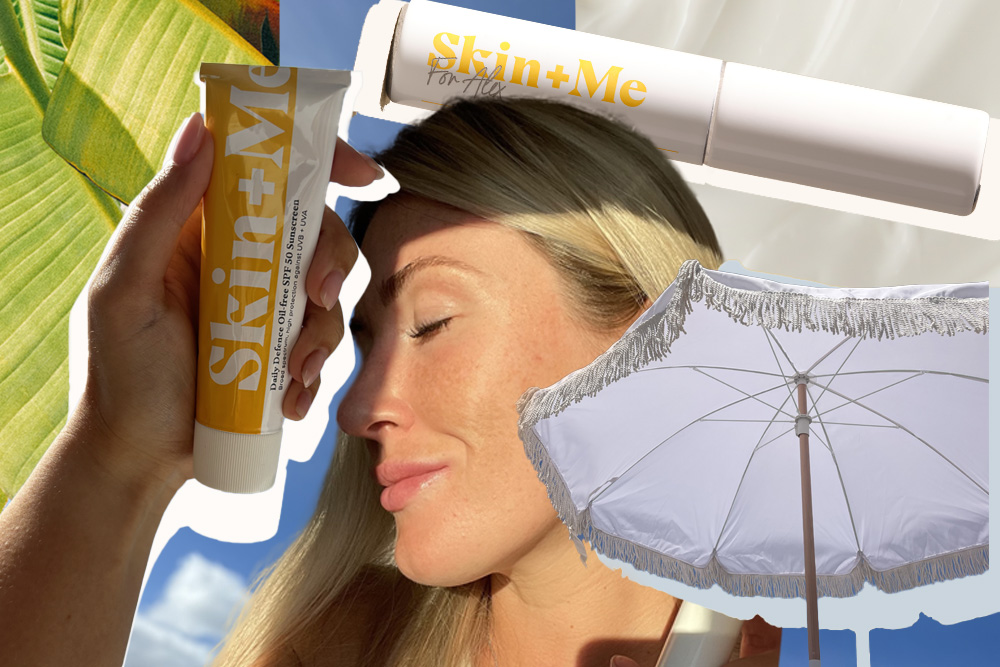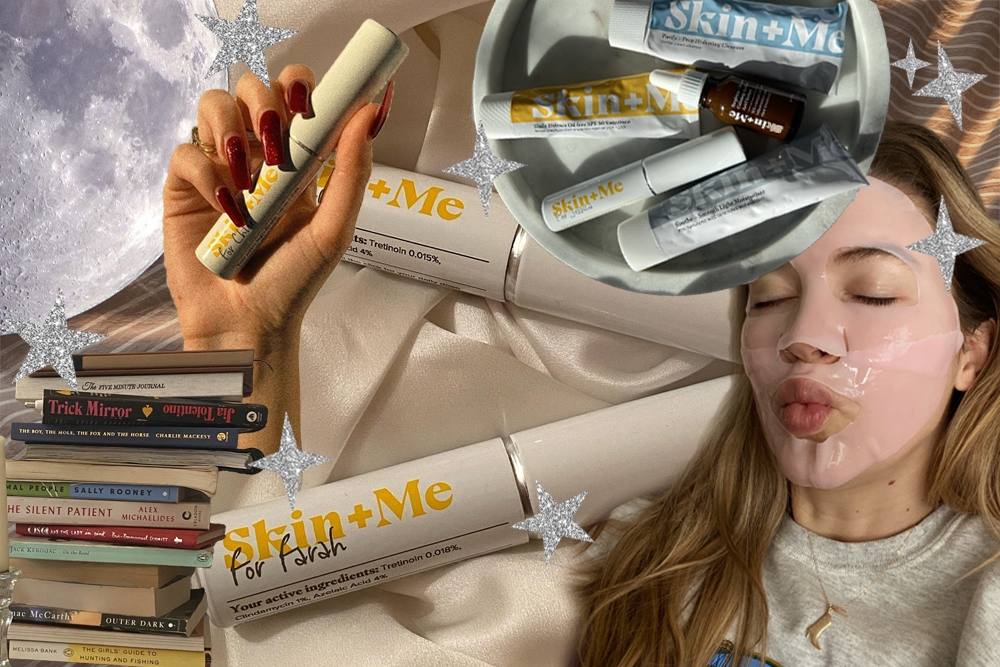Melasma 101

Link to share article here:
Ask A Dermatologist: Pregnancy-Safe Skincare & Suncare
Pregnancy is a time to take stock of your skincare regime, embrace skinimalism and swap in products with certain active ingredients for their pregnancy-safe alternatives.
But where to start? At first glance, prenatal skincare can feel like a minefield. You may be preparing for a baby but that doesn’t mean skin concerns like acne or melasma disappear overnight. Plus, sun protection – pregnancy-safe sunscreen – is as important as ever.
We check in with our Consultant Dermatologist, Dr Malvina Cunningham to simplify things.
Acne treatment when you’re pregnant
Acne is one of the big issues that women can face during pregnancy.
Dr Malvina explains, “Acne can flare or start, particularly in the first trimester. So, if you can, get your skin sorted before you plan a pregnancy so that you’re starting from a great baseline.” If you’re making plans to get pregnant, it’s worth investing in your skin in advance. Ahead of pregnancy, get your skin in tip-top condition with a simple but effective skincare routine.
If you’re making plans to get pregnant, it’s worth investing in your skin in advance.
Is azelaic acid safe during pregnancy?
Once you’re pregnant, there are still plenty of active ingredients you can use safely to tackle acne, including azelaic acid and benzoyl peroxide. Dr Malvina explains, “Azelaic acid is available over the counter at lower concentration but can be prescribed at higher concentrations of 15% and 20%. Benzoyl peroxide is also considered safe in pregnancy at low concentrations. It can be drying and even irritant for some, particularly if you have dry or sensitive skin, so start low (such as 3%) and go up to a maximum of 5%. It’s great for putting directly onto spots, too. Alternatively, you can use a low dose of salicylic acid that’s available over the counter, such as at 2%, as spot treatment but don’t go any higher in your dosage.”
Topical clindamycin and pregnancy
Clindamycin is a topical antibiotic used to soothe inflammation in the skin. We don’t recommend it for pregnant women and breastfeeding mothers.
Chemical exfoliants and pregnancy
Missing your chemical exfoliants? Good news. Dr Malvina says, “AHAs can be used, but skin in pregnancy can be more sensitive so use add only if needed and if other pregnancy-safe ingredients are tolerated.”
If acne is really getting you down during pregnancy, there are other options too.
“If your skin runs into more trouble and the ingredients I’ve mentioned aren’t working then there are additional topical and even oral antibiotics that can sometimes be used for a short amount of time but this would be under the direction of your healthcare professional who can advise you and prescribe as needed.”
Make sure you have the basics sorted to help tackle acne. “As always, make sure that you are using a simple consistent skincare routine consisting of twice-daily cleansing and moisturising as well as a daily sunscreen.”
“As always, make sure that you are using a simple consistent skincare routine consisting of twice-daily cleansing and moisturising as well as daily sunscreen.”
DR MALVINA CUNNINGHAM
Treating and preventing melasma during pregnancy
Many expectant mothers develop melasma, which, although harmless, can affect self-confidence. Mostly affecting women with a darker skin tone, it appears as dark, confetti-like patches of skin on the forehead, upper lip, nose and cheeks. It’s sometimes called the ‘mask of pregnancy’.
Dr Malvina says, “This can be a real problem and either come on or worsen during pregnancy. And the usual prescription treatments, such as retinoids (including tretinoin) and hydroquinone, cannot be used during pregnancy.”
However, there are ways to guard against it. “As always, if you can prepare your skin before pregnancy and get into the habit of wearing sunscreen daily. There has been a bit of debate regarding the safety of chemical sunscreens although they are generally regarded as safe. If you are worried, go for a mineral sunscreen containing iron or titanium dioxide and wear it daily.”
Azelaic acid, melasma and pregnancy
If you’re looking to tackle melasma once it’s appeared, once again make azelaic acid your go-to ingredient. You can get it over the counter or as part of a prescription. There are also other options that can help treat melasma during pregnancy.
Dr Malvina explains, “Other active ingredients that are great to incorporate are vitamin C as well as niacinamide, which are both well tolerated and can help brighten the skin.”
Pregnancy doesn’t have to mean a compromised skincare routine – it just means looking a little more closely at your ingredients list.
If you’re in doubt, you can take our Skin + Me online consultation, where our experts can advise on a personalised solution containing active ingredients that are safe for pregnancy, but effective for your skin goals.
Pregnancy-safe suncare
As mentioned previously, good sun protection is essential at all life stages and pregnancy is no different. All daily sun protection is better than nothing (cover your skin as a first resort). Chemical vs. mineral sunscreen? Mineral sunscreens tend to be the more popular choice for pregnant women, containing iron or titanium dioxide.
Medical facts checked by Consultant Dermatologist, Dr Malvina Cunningham
New to Skin + Me? Get your first month of personalised skincare for £4.99 with promo code DOSE – complete our quick consultation here.
Looking for a routine refresh? Add the Dream Routine to your Skin + Me subscription.
In need of a restock? Head to The Skincare Shop for one-off purchases of your Routine Essentials.



